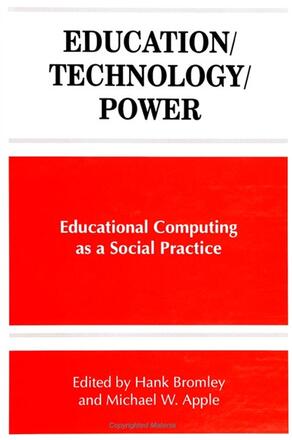
Education/Technology/Power
Educational Computing as a Social Practice
Alternative formats available from:
With a focus on educational computing, this book examines how technological practices align with or subvert existing forms of dominance. Examines the important question: Is the enormous financial investment school districts are making in computing technology a good idea?
Description
Is the enormous financial investment school districts are making in computing technology a good idea? With a focus on educational computing, Education/Technology/Power examines how technological practices align with or subvert existing forms of dominance.
Hank Bromley is Assistant Professor of Educational Organization, Administration, and Policy and Associate Director of the Center for Educational Resources and Technologies at the State University of New York at Buffalo. He is the author of Lisp Lore: A Guide to Programming the Lisp Machine (second edition coauthored with Richard Lamson). Michael W. Apple is the John Bascom Professor of Curriculum and Instruction, and Educational Policy Studies at the University of Wisconsin–Madison. He has written numerous books, including The Curriculum: Problems, Politics, and Possibilities, Second Edition with Landon E. Beyer, published by SUNY Press; Ideology and Curriculum; and Official Knowledge.
Reviews
"This book provides a powerful set of metaphors and linkages for thinking about technology in relation to education. It urges us to move beyond questions of instructional efficiency or the wonders of new technologies to consider the sociopolitical origins and implications of computing practices. " — Bertram Bruce, University of Illinois at Urbana–Champaign
"A highly original collection of essays on computers in schools and educational settings, this book causes us to question the contemporary verities about computers and schools. The essays definitely bring perspectives not usually seen in discussions of computers in education. A refreshing critical perspective on a topic that receives little criticism. " — Philip Altbach, Boston College